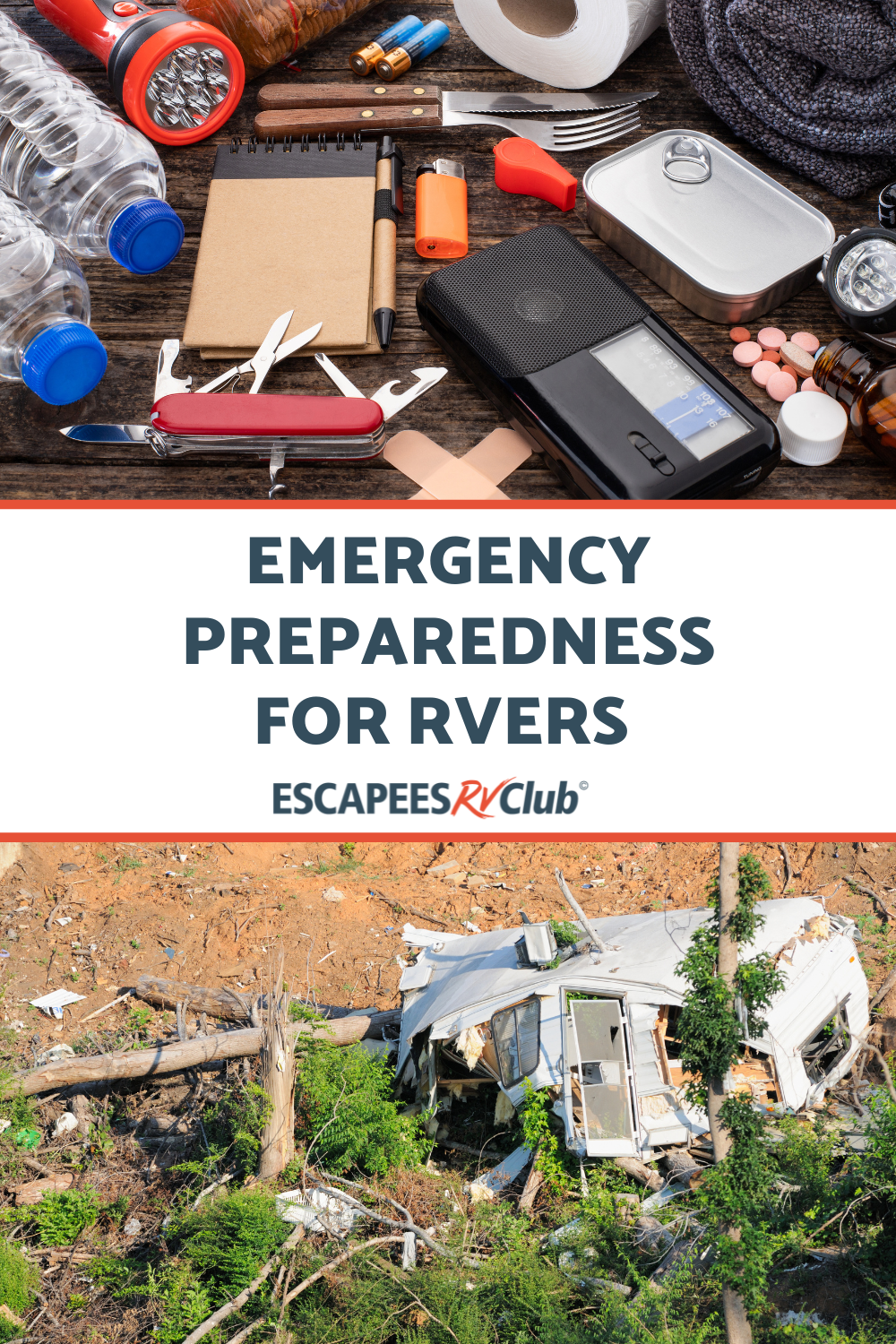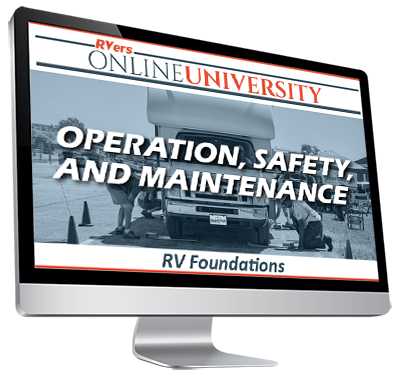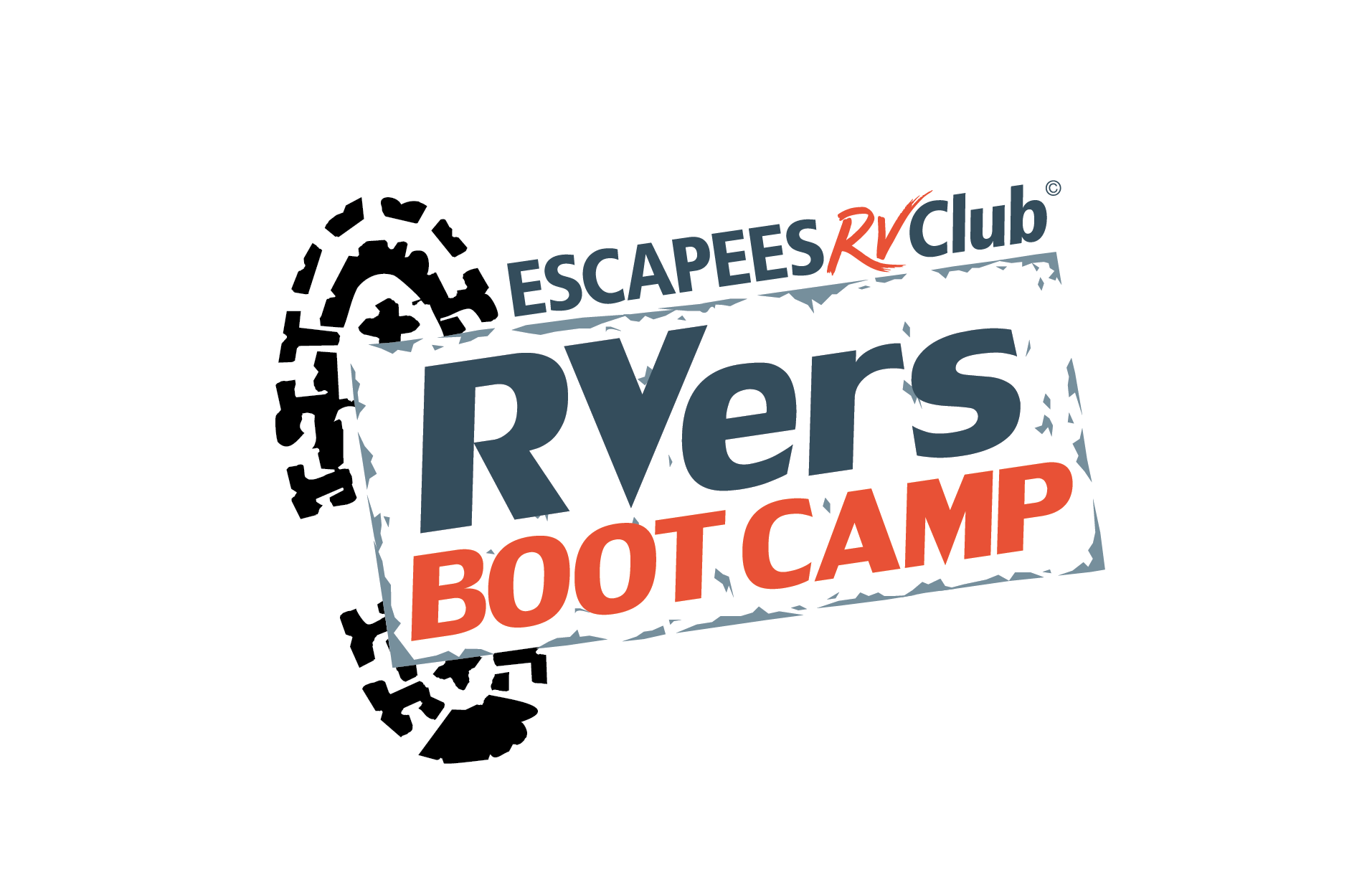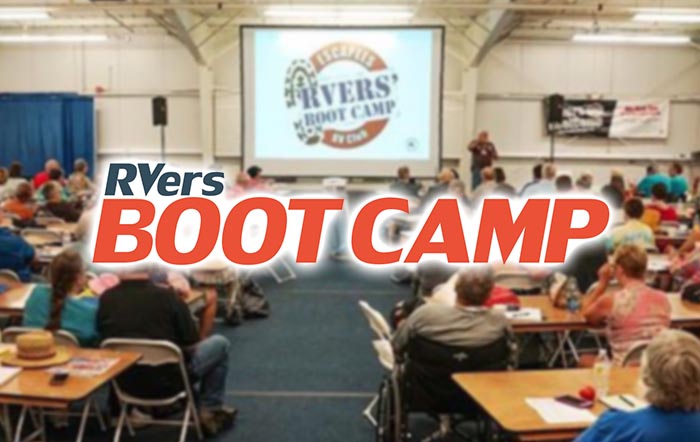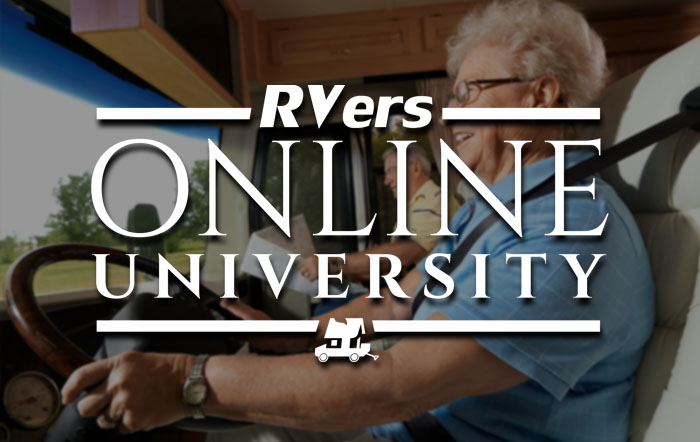Emergency Prep for RVers
One of the things we love about RV life is living kinda like a turtle- whether we travel full- or part-time, we carry much of our lives with us wherever we go. The downside of that, though, is that we carry our homes, all of our important things, with us everywhere we go.
So, how do you prepare your RV, and yourself, for the worst-case scenarios of RV life? Thankfully, plenty of fellow RVers have been there, done that, and survived to share their experiences and advice in case you find yourself in similar situations.
Preparing Your RV for Natural Disasters
Touring North America in your home-on-wheels means you’ll encounter a variety of climates and landscapes, and with them, the weather patterns that make them that way.
What’s the one thing that will always ensure you’re as prepared as possible? Information.
Regardless of where you are, keep an eye on your weather forecast. Not only does this help you plan your excursions, but you can listen for inclement weather that may be heading your way and give yourself time to evaluate your situation and make an informed decision regarding your next steps.
So, what kinds of weather should be prepare for?
Flash Floods in your RV
Whether you’re heading to arid deserts or wet and lush lowlands, flash floods are a common concern during the rainy seasons and a more concerning event during the dry season. Thankfully, in most situations, local weather reports will give you a heads-up when conditions are favorable for flash flooding. So, what do you do?
If you are camped in a high-risk area, such as near a body of water or near low spots like ditches, canals, and other man-made drainage structures, it’s in your best interest to relocate to safer areas further from those risks. Look for higher ground, or if possible, leave the warning area entirely. If relocating your RV isn’t an option, make sure you have a “go bag” of your essential items and important paperwork so you can quickly grab it and hop in your tow or towed vehicle to leave the area in an emergency. (We’ll talk more about go bags later as well as exit plans and emergency gear.)
Forest- and Wildfires and RVs
Did you know that about 85% of wildfires in the U.S. are caused by humans? (Source: NPS.gov) Unattended campfires, carelessly discarded cigarette butts, and burn piles of debris have led to devastation of so much public and private land. While there are certain seasons when the risk of wildfires is higher, fires can happen any time.
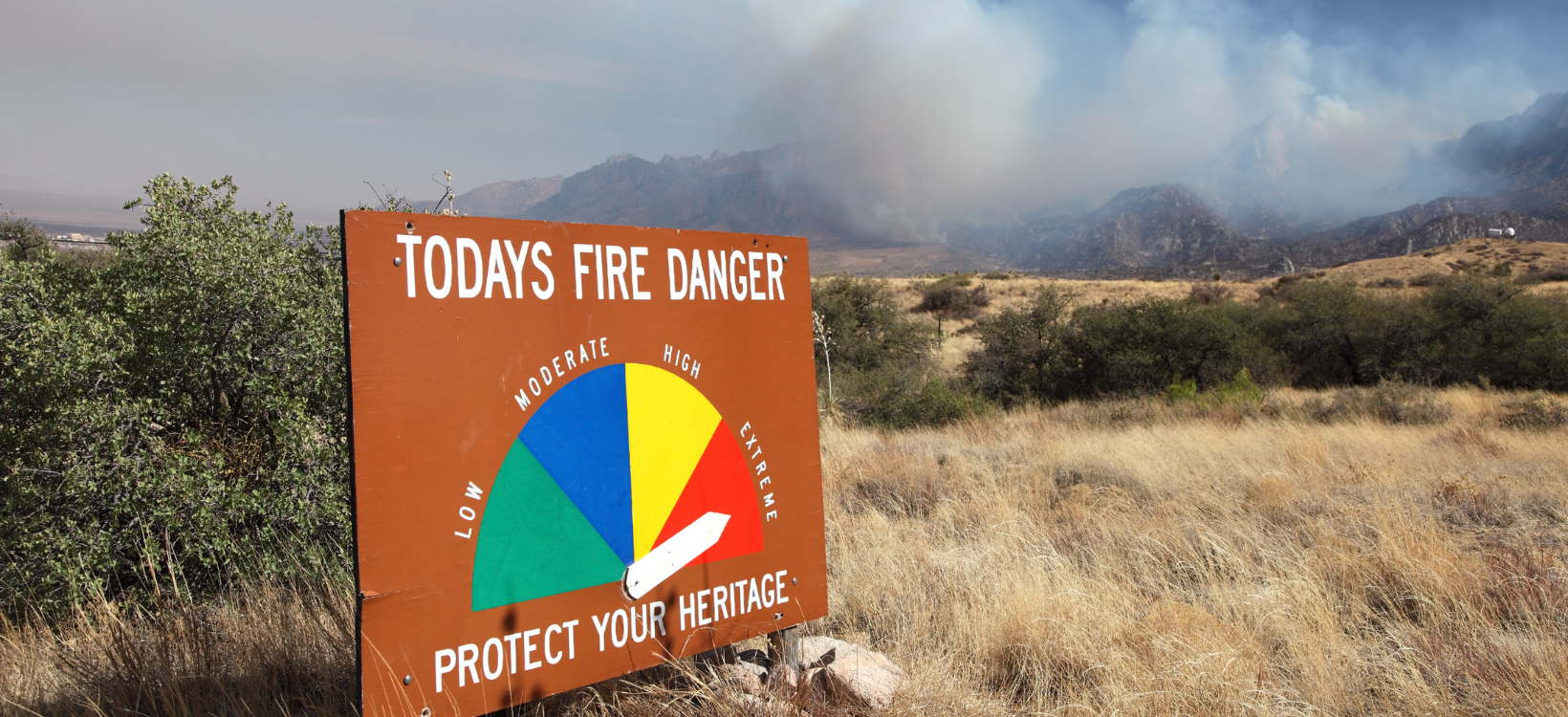
Similar to floods, local news and weather reports will often alert you to when conditions are favorable for fires starting and spreading, often using a rating system that ranges from “low” to “extreme.” (Source: U.S. Forest Service) In case you weren’t aware, many RVs are highly flammable thanks to the building materials and lightweight structure that make them travel-friendly. If you learn that fire danger level for your area is “high,” “very high,” or “extreme,” it’s a good idea to relocate while you’re able to. Once a fire starts under these conditions, it can spread quickly and erratically, making it difficult or impossible to move your RV safely. If you need to leave your RV behind, make sure you have your important paperwork and belongings in your tow or towed vehicle so you can leave quickly.
Weathering Thunderstorms in your RV
How many times have you watched a movie scene where characters are sitting on their porch, beverage in hand, as they watch a storm roll in, complete with dancing lightning strikes and swaying trees? As idyllic as that may seem, thunderstorms in your RV can be a very, very different experience.
RVs are intentionally lightweight. Strong wind gusts can do a lot of damage in a short amount of time, from rocking your RV (which can damage your stabilizers) to pulling off awnings, slide toppers, even roof materials. While we’ve recommended relocating for other weather events discussed so far, preparing for thunderstorms doesn’t have to be as drastic, as long as you are making well-informed decisions based on the forecast and current conditions.
Ways you can weather a thunderstorm in your RV:
- Angle your RV so the nose of it faces into the wind. This makes it so that wind is contacting the narrowest part of your RV, instead of the broadest, and reduces the side-to-side rocking and the risk of your RV getting flipped in a gust.
- Pull in all of your slides, even if this means you gotta get extra cozy on the couch or bed. The goal here is to make your RV more aerodynamic and protect your slide toppers from damaging gusts.
- Pull in your awning and secure it tightly closed.
- Secure everything that could become airborn, such as your outdoor furniture, grill, patio decor, and outdoor rugs. Not only will it make it easier to find them once the storm has passed, it also reduces the chance of any of them damaging your or your neighbors’ RV if the wind were to toss them around. This is a good time to make sure your solar panels are flat, too, if you typically have them angled.
- When high electrical activity or winds capable of knocking out power lines are anticipated, some RVers will also disconnect their rigs from the electric pedestal to avoid surges that can cause numerous issues, ranging from blown circuits to fried appliances and even electrical fires.
Facing Tornadoes in an RV
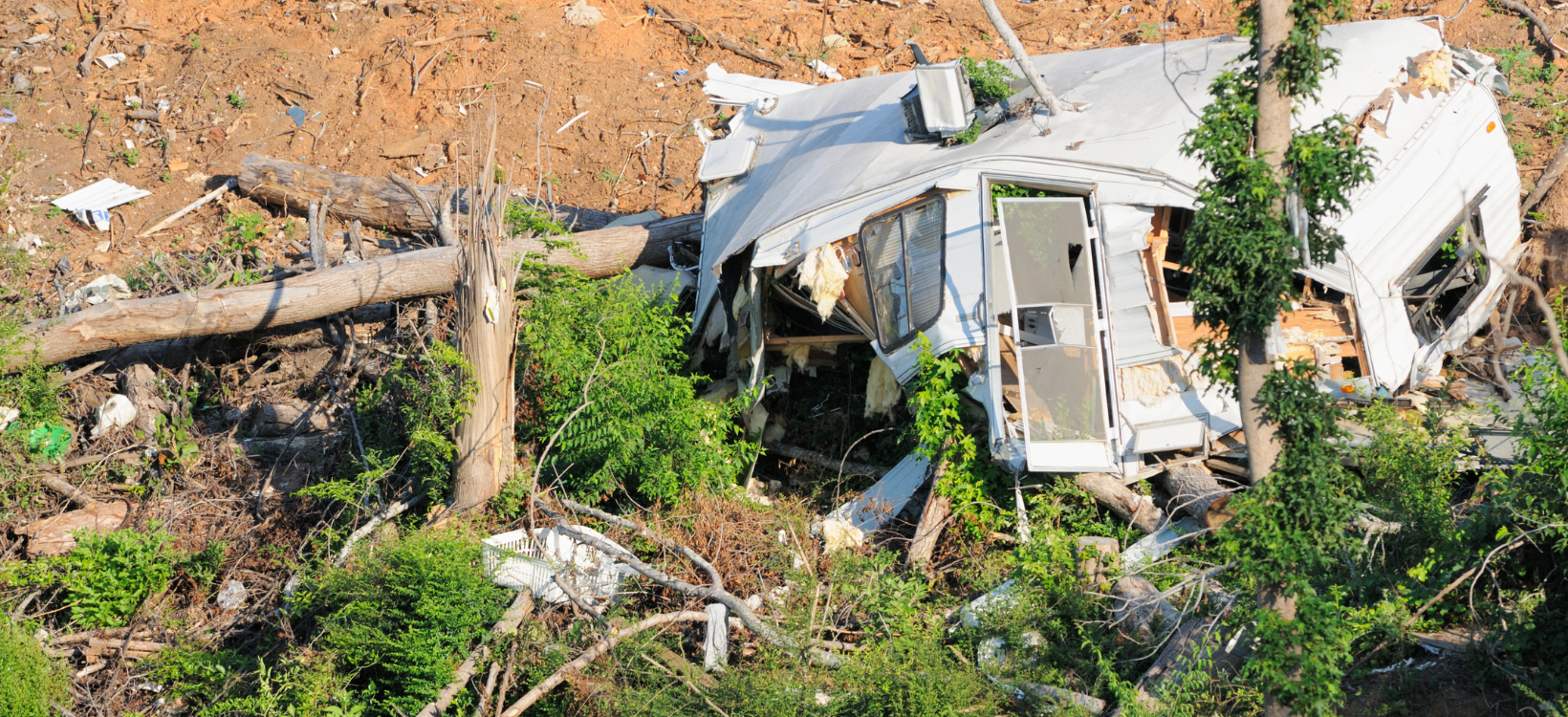
RV construction is an interesting balance between building them sturdy enough to handle the prolonged earthquake-like conditions of road trips and lightweight enough to be towed by passenger vehicles. Unfortunately, this makes them near-defenseless against weather events like tornadoes.
By the time a tornado watch has been issued (meaning weather conditions are ideal for producing tornadoes), it may be unsafe to relocate due to high winds and heavy rain on the roadways. In these instances, follow the same precautions as for a severe thunderstorm by pulling in your slides and awnings, angling your RV into the wind, etc. Hopefully the worst you’ll experience is high winds and a muddy campsite.
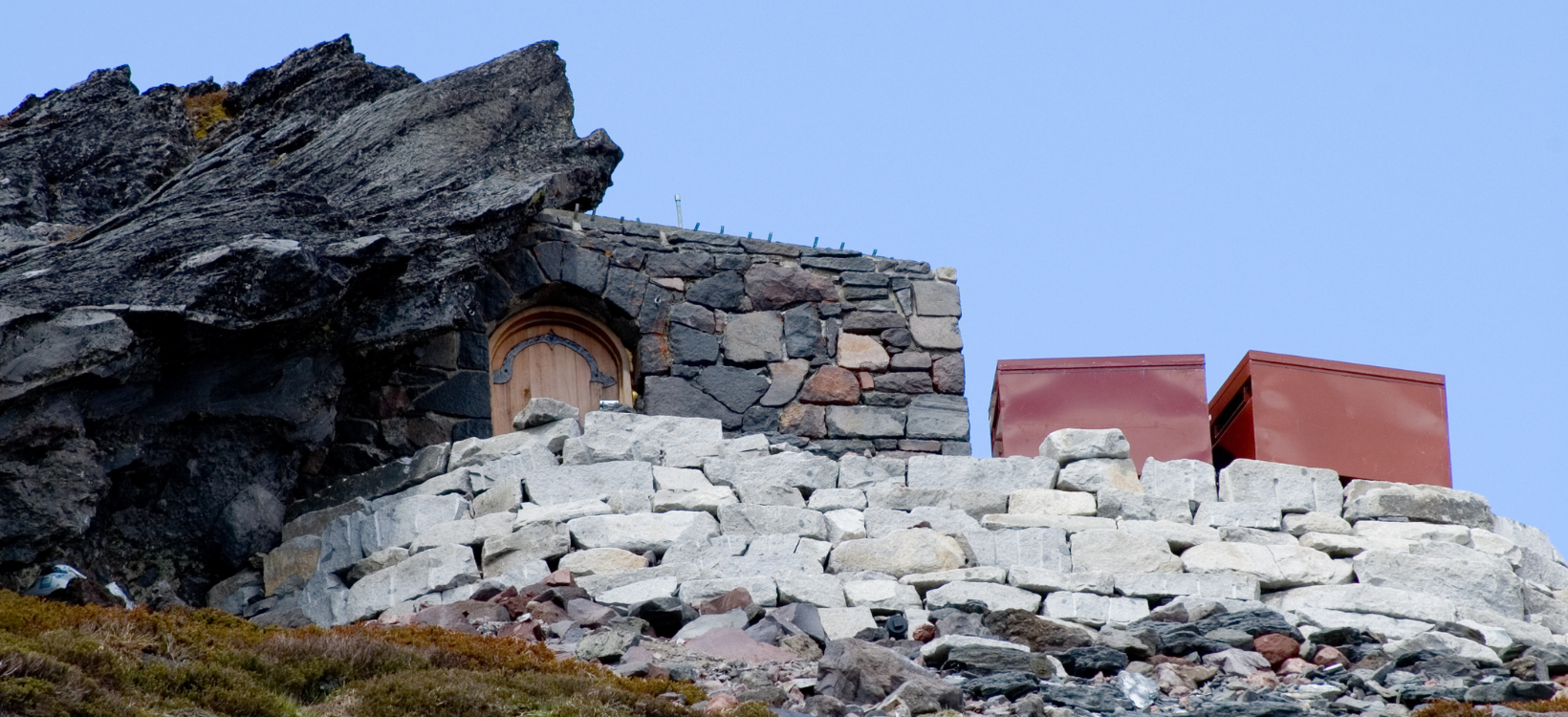
Once there is a tornado warning (meaning one has been confirmed by sight or radar), you need to seek shelter immediately somewhere safer than your RV. This may be the bathhouse or office at your RV park or campground. If you’re on public land, typically a ranger will have informed you at check-in where to seek shelter in case of emergency.
If there is no designated shelter near you, you still need to get out of your RV. Look for natural and mad-made features that can provide you a space to hide from flying debris, such as in a ditch, against a hill, or behind a concrete structure. Avoid places like overpasses and bridges, as they can aid in creating extremely dangerous wind tunnels.
Rapidly changing air pressure and high winds can destroy your RV in a matter of moments, sending pieces of wood, glass, and building materials whizzing through the air around you. Staying inside your RV is among the least safe places you can hide.
Hurricanes in your RV
Hurricanes are a unique situation, in that they combine the risks of flooding, thunderstorms, and tornadoes into one harrowing event. Unfortunately, the high-season for hurricanes is also very enjoyable for visitors and vacationers with the warm, breezy beaches as the summer traffic slows down along the southeastern coasts. With some preparations and planning, you, too can enjoy this season safely.
RVers (and boaters) Chris Dunphy and Cherie Ve Ard go more in-depth on hurricane prep for RVers in this article, but to summarize their advice:
– Pay attention to local weather forecasts. When advance notice is given, leave if you’re able. No reason to keep your family in harm’s way when your home has wheels.
– Whether you stay or evacuate, make sure your fuel tanks are full. This makes it easier if you decide to leave and need to get further away before you can refuel, and helps you with necessary tasks and errands after the storm passes if you decide to stay. You may find yourself relying more on your generator if your area loses power.
– Fill your fresh tank. Depending on where you end up, fresh water may be compromised for awhile due to flood waters following hurricane landfall.
– Empty your black and grey tanks. This helps your fuel efficiency if you head out, and gives you more flexibility if you get stranded in place.
With any of the natural disasters discussed here, the best way to prepare yourself is to get out of harm’s way once you learn of a worsening situation. Our homes have wheels, there’s nothing wrong with using them to avoid risk.
Roadside RV Emergencies
Not all emergencies you encounter are dependent on weather and natural conditions. We need to be prepared for roadside emergencies, too! While an emergency kit, like this assortment suggested by RVGeeks, is a must-have to take care of smaller issues on your own, there are times when you need to call in the pros to get your vehicle or RV back on the road.
For many of the situations we’re about to discuss, having a reliable roadside assistance policy and appropriate insurance coverage for your RV and tow/towed vehicle is the most effective way to prepare yourself for a roadside emergency. Between these two policies, most of the events we discuss below can be resolved with a phone call or two and some patience. With any of these situations, save yourself a headache and store your policy or account numbers and claims center phone numbers for these services in an easy-to-remember and easy-to-access place.
Prepare yourself for those phone calls by reviewing this article on what to expect from a roadside assistance claim and this one on what you need to know about your RV insurance policy. Doing this ahead of an emergency will help you understand what needs your policy covers and get an idea of what to expect from the claims process.
RV Collisions
Of course, the very first thing is to make sure all involved are ok and contact EMS if needed. Even if all involved are ok, you may need to call the police for assistance in getting your RV safely off the roadway or directing traffic away from the scene.
Once you’ve done that, get the ball rolling on your insurance claim by swapping info with the other party (if others were involved), and start making calls. It’s useful to have your RV’s length and weight handy for those calls in case this will affect the kind of tow truck needed to get your rig to safety. From there, your insurance company should be able to help you navigate the rest, whether it’s a hotel room for the night, a ride to the repair shop, etc.
Road Hazards for RVs
From pot holes to road debris to construction, we encounter road hazards pretty much every time we get behind the wheel. In these situations, the best preparation is practice and experience handling your RV in stressed conditions. For example, you should know
- How to safely steer away from a road hazard
- How to regain control of your vehicle or RV
- What your RV’s limitations are, such as how/if you can reverse safely, how far you can safely swerve, how much distance is needed to come to a full stop, etc.
You can learn more about driving and maintaining your RV in our in-person RVers Boot Camp or our virtual RVers Online University.
Sometimes the hazards we discussed above have further repercussions such as tire blowouts, hitch failures, axle damage, and more.
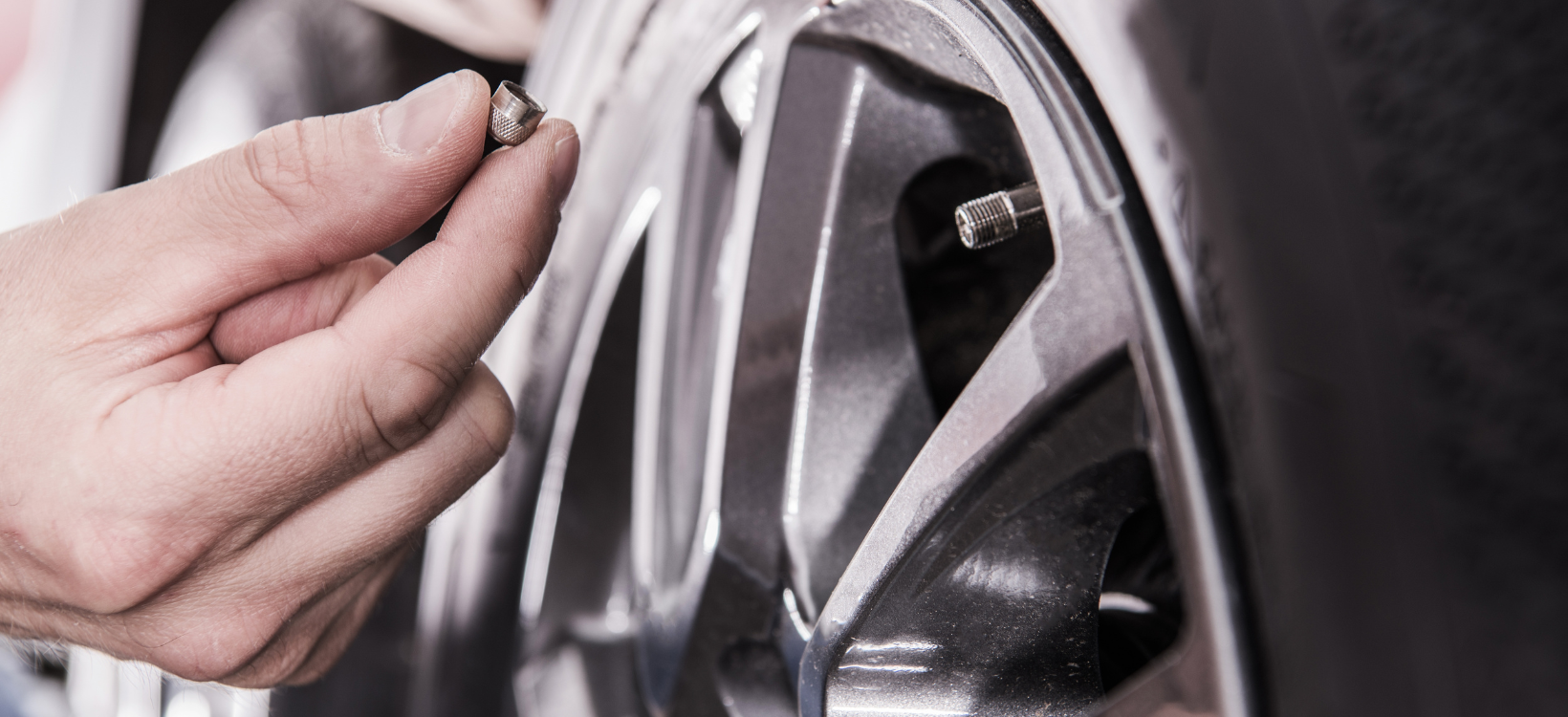
To minimize the likelihood of tire damage, make sure you’re maintaining proper air pressure in your tires and check them often for signs of damage or excessive wear. For more on tire maintenance, check out this article from Escapees’ technical safety director.
Maintaining a safe weight and proper weight distribution play a big part in preventing problems like hitch failures, axel damage, and other potential consequences of road hazards. How?
An overloaded tow vehicle or RV is already stressed as it bounces down the highway. The added stress of navigating a road hazard can be just enough to cause that stressed point to break. Regularly checking these contact points before each trip can help you catch problems early, too. You often see these kinds of tasks organized into something called a pre-flight checklist. While the phrase is borrowed from airline pilots, the intention is the same- verify that key components are in place and functioning as expected before you get moving to minimize the likelihood of an emergency while you’re en route.
RV Fires
Follow RVing news long enough and you’ll find reports of RV fires pop up several times a month. Why so many? As we mentioned earlier, RVs are built with relatively combustible materials plus many RVers don’t stay on top of regular maintenance and repairs. Similar to how a poorly cleaned dryer can cause the appliance to overheat and ignite built-up lint, improper or inconsistent maintenance of an RV creates dangerous conditions. The best preparation is prevention. (This article from fellow RVer Erik Anderson can help you get started maintaining your own RV!)
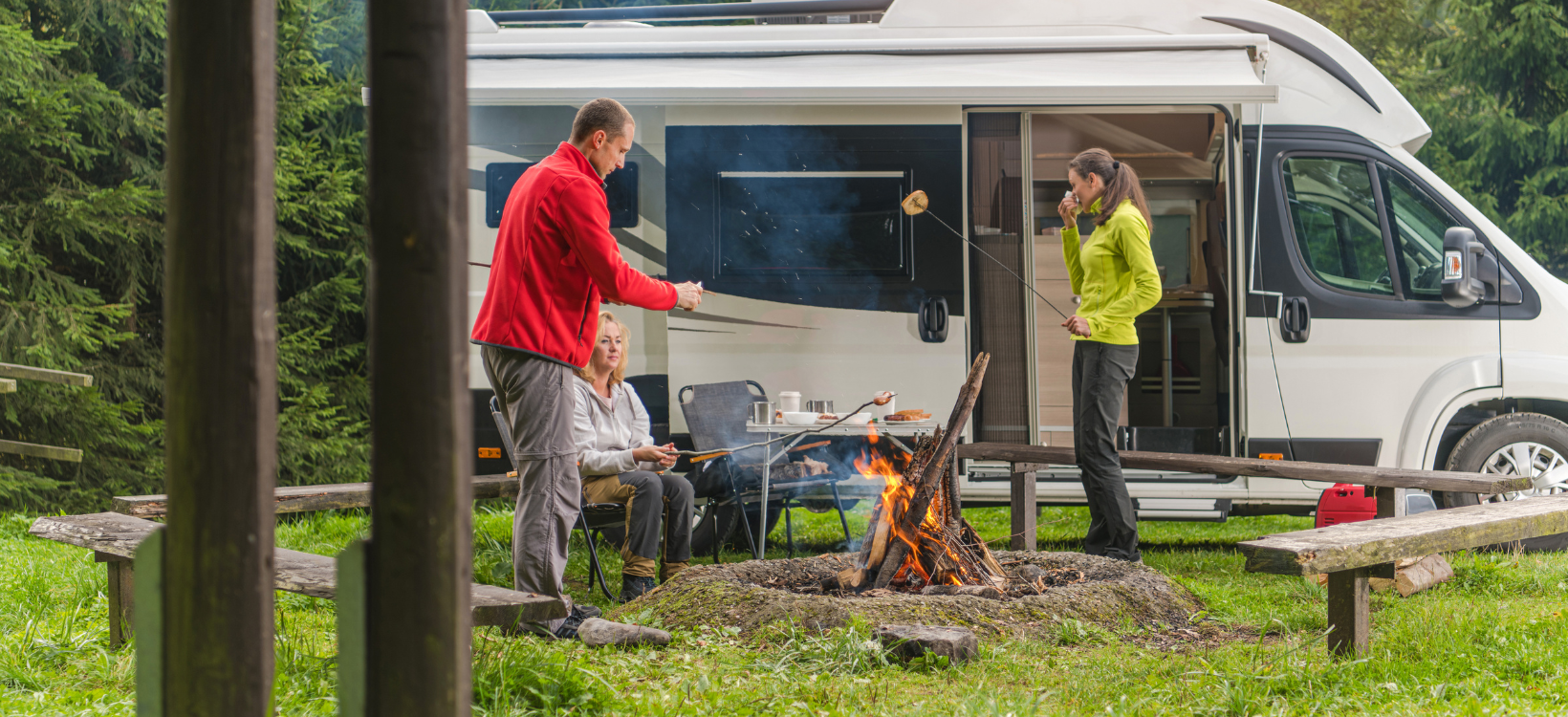
That said, sometimes there are outside forces you just can’t avoid. For example, your neighbor’s campfire may get out of control, you may encounter a construction zone on the road that leads to a tire blowout, or other fire-starting conditions. So what do you do when you need to get out of a burning RV? Start with making and practicing an escape plan! This guide from fire expert Mac McCoy walks you through the process of developing an escape plan, something you can practice many times in order to ensure you and your family know how to safely exit your RV in case of a fire.
What To Do If You Need To Vacate Your RV ASAP
With many of the emergencies we’ve discussed here, we’ve mentioned grabbing your important personal items and documents. An easy way to ensure you always have these handy is to build a go-bag or bug-out bag. Regardless of what you choose to call it, the idea behind these bags is that you have an easy, efficient way to grab those important items before you head out.
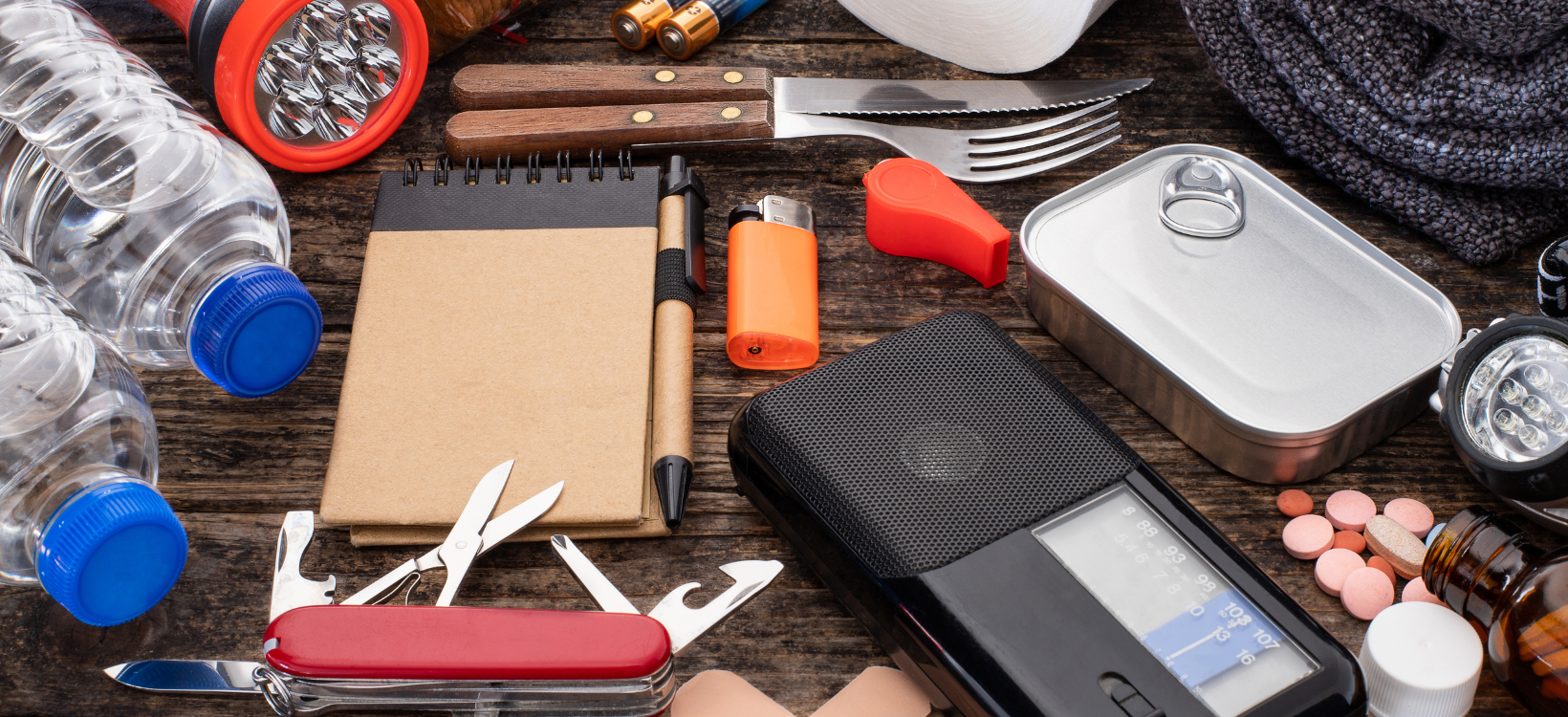
So what do you keep in a go-bag? Common items include:
- Daily and emergency medications for each family member, including pets
- Important documents such as birth and marriage certificates, passports, insurance policies, wills, etc.
- First aid kit
- At least one or two non-perishable meals per family member, including pets
- Bottled water
- Charged back-up battery for your devices, along with needed charging cables
- Flashlight or headlamp
- A change of clothes per person, or at least a change of undergarments
- A warm blanket
- Necessary toiletries such as toothpaste and toothbrush, soap, toilet paper, hygiene products, maybe even wet wipes
- A list of emergency contacts (don’t rely on your cell phone!)
- Back-up communication such as handheld satellite radios/walkie talkies and a weather radio
Sounds like a lot, right? For some families, items are distributed into multiple bags assigned to individuals to make it easier. If you do this, ensure there are enough of the vital items in each bag that everyone has what they need in case you get separated. To improve your muscle memory, make sure that grabbing your go-bag is part of your emergency exit practice! This can help you decide the best place to store it, too, once you fine-tune your emergency plan.
Keep your tow or towed vehicle fueled in case you need to leave urgently and fuel stations are unavailable. With many of the natural disasters we discussed above, you may find that fuel stations near you are inaccessible due to road blocks or lack of electricity, are sold out, or are too far for your limited fuel to reach.
Plan Ahead So You Don’t Have To Be Afraid!
Reading through all this can feel intimidating, for sure (writing it did, too!). We’re glad you made it to the end, anyway.
The point of articles like this, and following the suggestions laid out for you, is to reduce anxiety and forgetfullness when an emergency strikes by helping you think and plan ahead when life is calmer and it’s easier to gather your thoughts.
With some planning and preparedness, all areas of North America can be enjoyed year-round. Use information such as weather reports and forecasts to inform your travel plans, make sure you’re aware of emergency shelters and routes once you land in an area, then set up camp and do what you came here for- explore!
Did you like this post? Pin it to Pinterest!
